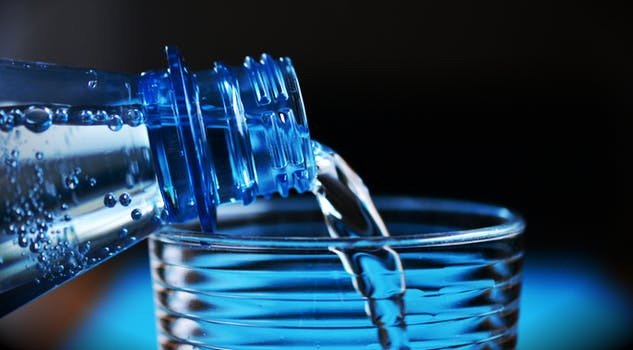Imagine a cold winter day with thick snow and a howling wind outside. Inside, you’re warm and cozy, thanks to your reliable HVAC system. However, this hardworking system may be facing a hidden enemy: hard water. Hard water can reduce your HVAC system’s lifespan. Treating the water that flows through it can significantly ease the strain and help your system last longer.
The Straightforward Solution to Prolonging HVAC Efficiency
In simple terms, hard water is water high in mineral content. While these minerals are not harmful to our health, they can wreak havoc on heating, ventilation, and air conditioning (HVAC) systems. In regions with tough weather conditions, where HVAC systems are our lifelines, water-softening technology becomes a necessity, ensuring that these essential systems run smoothly and last longer.
The Impact of Hard Water on HVAC Systems
1. Scale Buildup in Heat Exchangers
One of the most direct impacts of hard water on HVAC systems is the formation of scale within heat exchangers. The minerals in hard water precipitate and form deposits on the surfaces of heat exchangers, reducing their efficiency. This buildup acts as an insulator, impeding heat transfer, which forces the system to work harder to achieve the desired temperature, leading to increased energy consumption and wear on the equipment.
2. Reduced Efficiency of Boilers and Water Heaters
Hard water can significantly reduce efficiency in systems that use water heaters or boilers. Scale deposits form on the heating elements and the interior surfaces of the boiler, diminishing heat transfer efficiency. This results in longer heating times, increased energy usage, and higher operational costs. Over time, the buildup can become so severe that it leads to system failure or the need for costly repairs and replacements.
3. Clogged Pipes and Reduced Water Flow
The mineral deposits from hard water can accumulate within the pipes of HVAC systems, leading to clogs and restricted water flow. Reduced water flow can impair the system’s ability to heat or cool spaces effectively, compromising comfort levels and increasing strain on the system. This can also lead to increased pressure within the pipes, which may cause leaks or bursts over time.
4. Increased Maintenance and Repair Costs
HVAC systems exposed to hard water require more frequent maintenance and repairs. Regular descaling and cleaning are necessary to remove mineral deposits and maintain system efficiency. These maintenance tasks can be labor-intensive and costly. Additionally, the increased wear and tear on components can lead to more frequent breakdowns and the need for premature replacements of parts.
5. Corrosion and Damage to Components
Hard water can accelerate the corrosion of metal components within HVAC systems. The minerals in hard water create a corrosive environment that can damage pipes, valves, and other critical parts. Corrosion weakens these components, leading to leaks and system failures. Protecting against corrosion is essential to extend the lifespan of the HVAC system and prevent costly damage.
6. Impact on Humidifiers and Evaporative Coolers
In HVAC systems that include humidifiers or evaporative coolers, hard water can be particularly problematic. Mineral deposits can clog the small orifices and pads in these devices, reducing their effectiveness and requiring frequent cleaning or replacement. This not only increases maintenance costs but can also compromise indoor air quality and comfort.
7. Energy Inefficiency and Higher Utility Bills
The inefficiencies caused by scale buildup and restricted water flow result in the HVAC system consuming more energy to perform its functions. This increased energy usage leads to higher utility bills. Over time, the cumulative cost of these inefficiencies can be substantial, making it economically prudent to address hard water issues proactively.
8. Shortened Equipment Lifespan
The combined effects of scale buildup, corrosion, and increased wear and tear can significantly shorten the lifespan of HVAC equipment. Frequent breakdowns, reduced efficiency, and the need for more frequent part replacements all contribute to an accelerated aging process for the system. Investing in water treatment solutions can help mitigate these effects and extend the life of the equipment.
9. Impact on Cooling Efficiency
In cooling systems, such as air conditioners and chillers, hard water can reduce efficiency by affecting the performance of condensers and evaporators. Scale buildup on these components impairs their ability to transfer heat, reducing the overall cooling efficiency of the system. This can lead to insufficient cooling, higher operational costs, and increased wear on the system as it works harder to maintain desired temperatures.
10. Potential Health Concerns
While primarily a mechanical issue, the effects of hard water on HVAC systems can also have indirect health implications. For instance, scale buildup in humidifiers can harbor bacteria and mold, which can be dispersed into the indoor air, affecting air quality and potentially leading to respiratory issues. Regular maintenance and water treatment can mitigate these risks and ensure a healthier indoor environment.
The Role of Water Softening in Maintaining HVAC Systems
Here’s where water softening technology steps onto the scene. By removing the minerals that cause hard water, a water softener ensures that the water coursing through your HVAC system is kind, gentle, and significantly less likely to cause damage.
Some of the benefits include:
-
Extended Lifespan: Less scaling and corrosion mean your system can live a longer, healthier life.
-
Improved Efficiency: With no scale buildup, heat transfer is more effective, and your system can do its job without overworking.
-
Cost Savings: A more efficient system will save money on energy consumption and potential repair costs.
Water Softening in Extreme Weather Conditions
Maintaining HVAC systems is even more critical in areas where weather conditions can push them to their limits. When temperatures drop below freezing, any inefficiency or malfunction not only becomes an inconvenience but a serious risk to the safety and comfort of your home.
By investing in a good water softening system, you’re giving your HVAC equipment the protection it needs to function optimally, even when Mother Nature throws her worst at you. A little preemptive care can save you from the headache of emergency repairs during the coldest night of the year.
When You Need Expert Advice
We’ve established that water softening is beneficial, but you might be left wondering how to go about implementing this solution. This is where it pays to get expert advice. If you’re not sure what system you need or how to maintain one, don’t hesitate to call Enersure. Their expertise can guide you through selecting the right water softener for your home and HVAC setup, ensuring it’s optimized for the specific challenges you face.
Water Softeners and Energy Efficiency
For those thinking green, water softeners aren’t just good for the hardware; they’re also friends of the environment. A well-maintained and softened water supply can reduce the carbon footprint of your HVAC system by demanding less power to reach desired temperatures. That’s a win for your wallet and the planet.
Let’s now look at another critical aspect of your home’s heating system—natural gas water heaters. If you’re using one, you should know that it can also suffer from hard water. Scale buildup can reduce its efficiency and lifespan. Water softeners benefit these systems just as they do HVAC units, making them an obvious choice for overall home system maintenance.
Choosing the Right Water Softener
So, how do you pick the proper water softener? Consider these tips:
-
Assess your water hardness level with a test kit.
-
Determine your household’s daily water usage to find a water softener with the right capacity.
-
Look for systems with efficient regeneration cycles to save on salt and water.
These are starting points for your journey to softer water and a happier HVAC system.
Final Thoughts
Hard water is the silent enemy of your HVAC’s longevity and efficiency. It’s time to defend your vital home systems with effective water softening. Ensure your cozy corner remains a refuge from the harsh world outside, and give your HVAC the armor it needs to battle the elements. Remember, expert help is just a phone call away, so don’t shy away from reaching out to professionals to keep your home comfortable and efficient.



